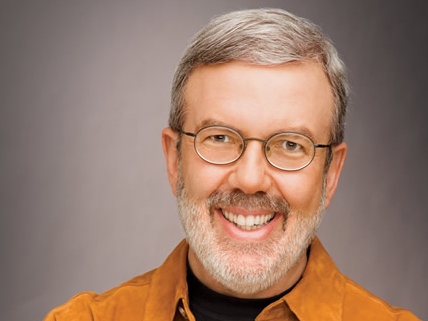
Last month, theaters around the country screened a movie most Americans have seen countless times both on home video and television.
“Casablanca” made more than $800,000 on one night – on a school night, no less, according to film historian Leonard Maltin.
“That’s the best news I’ve had all year,” says Maltin, venerable film critic, author, professor and host of “Maltin on Movies” at Reelz.
Maltin visited Denver last week to share another classic film with a modern audience, “Seven Brides for Seven Brothers” along with its star, Jane Powell. It’s part of the publicity tour for the third annual TCM Classic Film Festival, which kicks off Thursday.
The Hollywood-based event will feature appearances by Shirley Jones, Dick Van Dyke, Angie Dickinson, Robert Wagner and director Norman Jewison. The four-day festival will screen such classic fare as “The Wolf Man” (1941), “A Night to Remember” (1958), “Rio Bravo” (1959) and many more unforgettable films.
Last year, the festival drew more than 25,000 attendees. Films will be screened at Grauman’s Chinese Theatre, Chinese 6 Theatres, the Egyptian Theatre and, for the first time this year, Arclight Cinema’s Cinerama Dome.
Maltin says both his wife and daughter count “Seven Brides” as their favorite film, a cinemascope production that made full use of the widescreen technology.
“They filmed it twice,” Maltin explains of the 1954 musical. “Some theaters hadn’t spent the money, or hadn’t installed the lens and the big, new wide screen.” “Brides” co-star Russ Tamblyn once told Maltin that during production, director Stanley Donen would shoot a scene, yell, “Print!” and then tell his cast to “move closer” to shoot the other version.
Maltin occasionally screens “Brides” for his students at the University of Southern California, but he always makes sure to put the film in context before doing so.
“You have to set the stage. It helps if you anticipate some of the things they’ll find foreign or unfamiliar,” he says. “They aren’t used to people bursting into song. They’re not used to a square-jawed, he-man musical hero like Howard Keel.”
A few female students found the film sexist – at first.
“It’s a guy looking to essentially hire a wife, conscript a wife,” he says. But he gently challenged his students to look at the bigger picture. “Who’s the smartest character in the film? Who really controls and propels everything that happens in the movie … the character of Milly played by Jane Powell. She’s the rock of Gibraltar.”
Maltin still screens the latest movies as well as cherished older films, and he’s keenly aware of the differences in both the films and how they are marketed to the masses.
In the past, actors would appear on radio programs and deliver tightly scripted banter meant to promote their movies and burnish their respective images. Now, celebrities routinely work the talk show circuit, bouncing from Jay’s couch one night to Ellen’s sofa the next afternoon.
“In the old days, studios tried to keep their stars on a pedestal,” he says, one possible reason why the public doesn’t necessarily rush out to see their favorite stars’ new movies anymore.
Maltin is far more certain about how weak the writing tends to be in modern movies. Simply put, they don’t write ’em like they used to.
“Wit is not held in high esteem. It’s not prized. It’s not valued,” he says. And many filmmakers insist on telling stories in nonlinear fashion, a clear break from the past.
That’s why a movie like “The King’s Speech” resonated with multiple demographics in 2010.
“Many people would scoff at ‘The King’s Speech’ as an old-fashioned movie … but I haven’t met anybody who didn’t enjoy that movie,” he says.
The recent success of classic film re-releases like “Titanic” and “Casablanca” suggest the killer app for Hollywood might not be 3D filmmaking but simply digging through the old vaults. It’s a process Disney once perfected in the days before VHS tapes and DVD.
“They did that for decades with enormous success,” he says of their release strategy.
No matter how times change, or how new television sets mimic their big-screen cousins, people still like to spend quality time together in darkened movie houses, he says.
“None of the young people who were dying to see ‘The Hunger Games’ said, ‘I’ll stay home and wait for it on cable, or I’ll download it in six months,'” he says. “Movie going is alive and well.”

COMMENTS
Please let us know if you're having issues with commenting.